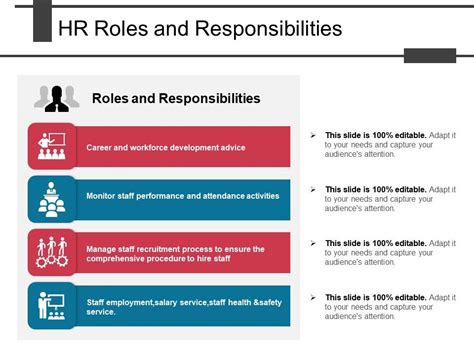What Are the Roles, Responsibilities, and Path to Success as an IT Specialist?

In today’s digital age, Information Technology (IT) plays a crucial role in almost every aspect of our lives. From managing computer networks to developing software applications, IT specialists are responsible for ensuring the smooth operation of technology systems within organizations. In this article, we will explore the roles, responsibilities, and path to success for IT specialists.
1. What is an IT Specialist?
An IT specialist is a professional who specializes in various aspects of information technology. They are responsible for designing, implementing, and maintaining technology systems to meet the needs of an organization. IT specialists work in a wide range of industries, including healthcare, finance, education, and government.
2. Roles and Responsibilities of an IT Specialist
An IT specialist has a diverse range of roles and responsibilities. Some of the key responsibilities include:
- Managing computer networks and infrastructure
- Providing technical support to end-users
- Developing and implementing software applications
- Ensuring data security and privacy
- Conducting hardware and software upgrades
- Monitoring and troubleshooting system issues
- Collaborating with cross-functional teams
- Training users on new technologies
- Researching and evaluating new technologies
- Creating and maintaining documentation
3. Skills Required for an IT Specialist
To excel as an IT specialist, certain skills are essential. These skills include:
- Strong problem-solving and analytical skills
- Excellent communication and interpersonal skills
- Technical knowledge in areas such as networking, programming, and database management
- Attention to detail and ability to work under pressure
- Adaptability to rapidly changing technology environments
- Project management skills
- Ability to work collaboratively in a team
- Continuous learning and staying updated with the latest industry trends
4. Educational and Professional Path
The educational and professional path to becoming an IT specialist typically involves the following steps:
- Earn a bachelor’s degree in information technology, computer science, or a related field
- Gain practical experience through internships or entry-level IT positions
- Obtain relevant certifications such as CompTIA A+, Cisco Certified Network Associate (CCNA), or Microsoft Certified Solutions Expert (MCSE)
- Pursue higher education or advanced certifications to specialize in a specific area of IT
- Stay updated with the latest industry trends through continuous learning and professional development
- Build a professional network and seek opportunities for career advancement
5. Career Opportunities for IT Specialists
IT specialists have a wide range of career opportunities in various industries. Some of the common job titles for IT specialists include:
- Network Administrator
- Systems Analyst
- Database Administrator
- Software Developer
- IT Project Manager
- Cybersecurity Analyst
- Cloud Architect
- IT Consultant
- IT Director
- Chief Information Officer (CIO)
6. Salary and Job Outlook
The salary and job outlook for IT specialists vary depending on factors such as experience, education, and location. According to the U.S. Bureau of Labor Statistics, the median annual wage for computer and information technology occupations was $93,730 as of May 2020. The job outlook is also favorable, with a projected growth rate of 11% from 2019 to 2029, much faster than the average for all occupations.
Conclusion
Becoming an IT specialist offers a rewarding career with a wide range of opportunities. By acquiring the necessary skills, education, and certifications, individuals can embark on a path to success in the dynamic field of information technology. Whether it’s managing computer networks, developing software applications, or ensuring data security, IT specialists play a vital role in driving technological advancements and enabling organizations to thrive in the digital era.
Frequently Asked Questions
1. What qualifications do I need to become an IT specialist?
To become an IT specialist, it is recommended to earn a bachelor’s degree in information technology, computer science, or a related field. Additionally, gaining practical experience through internships or entry-level positions and obtaining relevant certifications can enhance your qualifications.
2. What are the essential skills for an IT specialist?
Essential skills for an IT specialist include strong problem-solving and analytical skills, excellent communication and interpersonal skills, technical knowledge in areas such as networking and programming, attention to detail, adaptability to changing technology environments, project management skills, ability to work collaboratively, and continuous learning.
3. What are the career opportunities for IT specialists?
IT specialists have various career opportunities, including network administrator, systems analyst, database administrator, software developer, IT project manager, cybersecurity analyst, cloud architect, IT consultant, IT director, and chief information officer (CIO).
4. What is the job outlook for IT specialists?
The job outlook for IT specialists is favorable, with a projected growth rate of 11% from 2019 to 2029, much faster than the average for all occupations. The demand for IT specialists is driven by the increasing reliance on technology in various industries.
5. What is the salary range for IT specialists?
The salary range for IT specialists can vary depending on factors such as experience, education, and location. According to the U.S. Bureau of Labor Statistics, the median annual wage for computer and information technology occupations was $93,730 as of May 2020.

